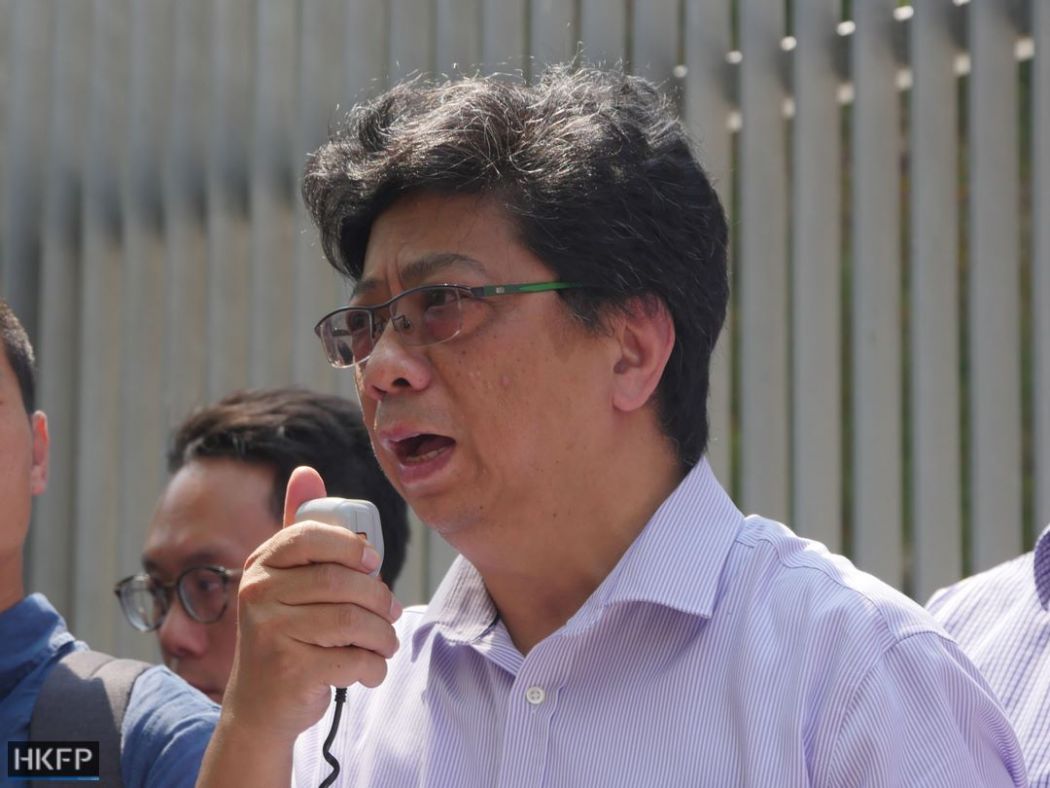A pro-democracy lawmaker has said that the Hong Kong government should explain whether there have been any instances of Chinse agents spying upon foreign journalists in Hong Kong.
On Tuesday, the Wall Street Journal cited government documents it obtained in which China’s security forces asked Malaysia if it would like them to bug the homes and offices of the newspaper’s reporters in Hong Kong. The intention was to uncover who was leaking information relating to the 1MDB corruption scandal to the newspaper’s journalists. The Journal said it could not confirm whether China had provided any information to the Malaysian government.
The report added that China’s offer was made in exchange for lucrative stakes in railway and pipeline projects being offered by Kuala Lumpur. Malaysian Minister of Finance Lim Guan Eng said on Tuesday that his ministry will look into the claims.

Hong Kong lawmaker Claudia Mo, convener of the pro-democracy camp, said she hoped the Hong Kong government would explain whether the city’s police force was involved.
“Was there any illegal cross-border law enforcement?… The Security Bureau should explain, and [Chief Executive] Carrie Lam should explain whether she knew about it,” Mo said.
Secretary for Security John Lee said on Tuesday that he would not comment on the details of the report: “But I can tell you for sure that only Hong Kong authorities have the power to enforce the law in Hong Kong.”

The government also refused to comment on the report when approached by AFP.
‘International image’
Hong Kong Journalists Association Chair Chris Yeung said he has yet to look into the details of the report and would not comment on it yet.
“Hong Kong is a free and safe society – the government also said it welcomes foreign media to come to Hong Kong for reporting. We don’t see issues in relation to personal safety yet,” he said on Tuesday.
“But if there are more and more examples like this, people may feel the problem of surveillance in Hong Kong is serious whereby reporters are facing pressure or threats, and it will have a negative impact on Hong Kong’s press freedom and international image.”
International NGO Reporters Without Borders told HKFP that it “firmly believes that journalists should be able to work independently and without any interference anywhere in the world.”
“Under no circumstances should a government office or any other organization spy on reporters, interfere with their investigations or try to uncover their sources,” it said.

Free expression
Meanwhile, several journalist groups met with Chief Secretary Matthew Cheung for an hour on Tuesday to discuss freedom of expression issues, including three cases that occurred within a month last year: the de facto expulsion of Financial Times journalist Victor Mallet, the cancellation of Chinese exiled writer Ma Jian’s talk, as well as the cancellation of political artist Badiucao’s exhibition owing to “threats made by the Chinese authorities relating to the artist.”
“These cases sparked a chilling effect and self-censorship,” Hong Kong Journalists Association Chair Chris Yeung said. “We believe our concerns are valid… we are even more concerned now.”
Yeung said the government has the responsibility to maintain a high level of freedom in Hong Kong for media and others.
“After the discussion, we feel that there is a very significant difference between our views on the current situation. We don’t feel our concerns can be eased. We hope the chief secretary will listen and understand,” Yeung said, declining to give details on what Cheung said.
“The government should not just believe it has done better with several things – and it should get to understand what actually is happening.”
